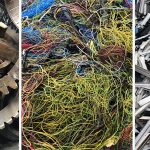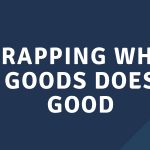WHY DOES THE PRICE OF SCRAP METAL CHANGE?
When it comes to weighing metals in, it’s always helpful to understand the factors that can affect the price you’re offered for them. So, why exactly does the price of scrap metal change? Like all markets, the metal market can fluctuate, not only on a monthly or weekly basis, but sometimes even daily. It all depends on how the economy is looking. The price of metal is never set in stone and all metal dealers can offer different prices. Our guide will help you to optimise your timing and get the most out of your scrap metal!
THE LONDON METAL EXCHANGE
The London Metal Exchange is the main authority that decides the price of scrap based upon worldwide trends. They take all the points listed below into consideration in addition to global economic events to set the trading prices. These prices have been established as the universal standard for many scrapyards globally. For more information and to check out today’s market prices, visit the official London Metal Exchange website.
MARKET DEMAND
After weighing in your scrap, it’s main use will mainly get recycled and used in construction projects around the globe. However, it could also be used to manufacture a range of new products. Aluminium is increasingly being used in everything from new mobile phones to construction to car manufacturing. This increases the market demand for aluminium, meaning it earns a higher price than a metal such as lead which isn’t as widely used. The price we pay for a metal would reflect how in demand it currently it is.
TIME OF THE YEAR
Typically, the construction industry is busiest in the warmer months of the year, meaning that the need for scrap to create new metal to build with is also higher. The opposite of this is true during winter. In the colder months construction slows down and there isn’t as much demand for certain metals to be used. This would, in turn, lower the prices paid for them.
LOCATION
The location of the scrap yard you are selling to is also an important factor to consider. If a scrap yard is far away from the middle of a city or transportation depot, this will affect the price they are able to pay for any metal you bring them. They will incur more costs to their business to transport the scrap to where it is needed. This means your scrap would be bought for a lower price to compensate their losses. Based in Atherton, near the bustling city of Greater Manchester, Kas Metal offers services to Leigh, Wigan, Tyldesley, Bolton, Worsley and Salford. Here is a quick link to our Atherton site location on Google Maps.
QUALITY, WEIGHT AND QUANTITY
The condition of the metals you bring us and how the pure they are will affect how much money you could potentially earn by weighing them in. The more metal you bring to weigh in, the bigger the amount we can pay!
TYPE OF METAL
Some metals are worth significantly more than others when it comes to weighing them in. Non-ferrous metals, that don’t contain iron, are typically worth more than ferrous metals that do. An alloy is a metal made by combining two or more metallic elements to give greater strength or resistance to corrosion – and is therefore not pure. For example, an alloy such as brass, which is a combination of copper and zinc, would be worth less than pure copper alone. We have a whole blog post dedicated to the top 5 most valuable metals to weigh in and where they are commonly found.
Unsure what type of metal you have? Visit our guide to how to identify scrap metals quickly and easily without needing any specialist tools. Still unsure? At KAS, we have world class equipment that quickly and accurately tests metal alloys, from trace levels to commercially pure metals. If you have any questions about the current prices of metal, our friendly and experienced team are on hand to offer advice in person or over the phone. You can reach us on: 01942 88 33 22 or take a look at our FAQ’s.




